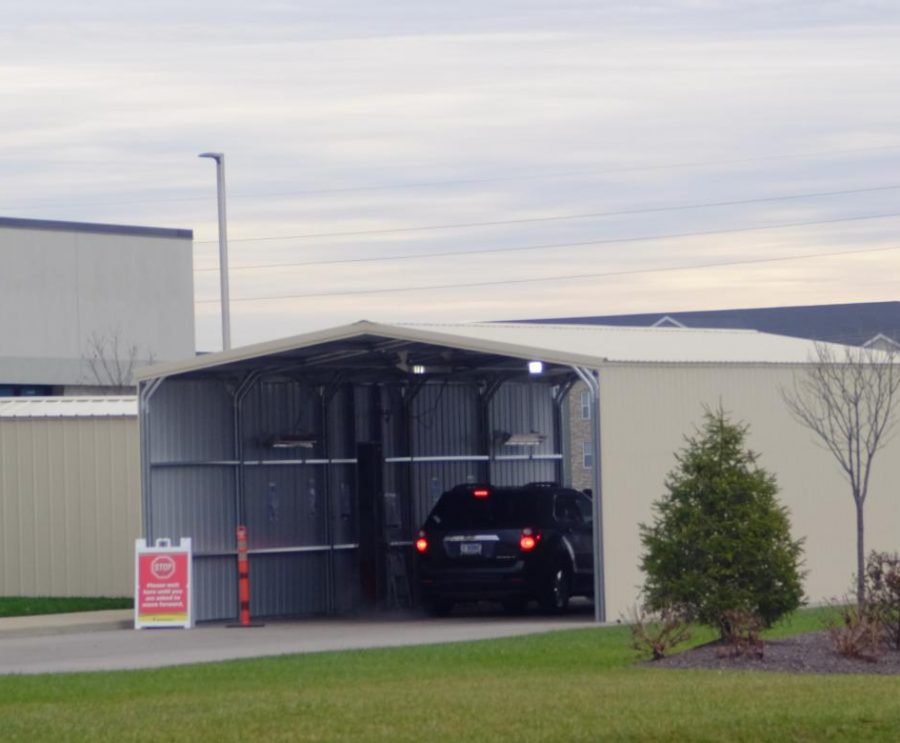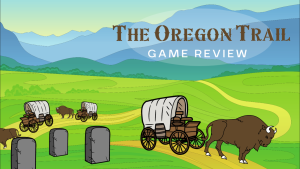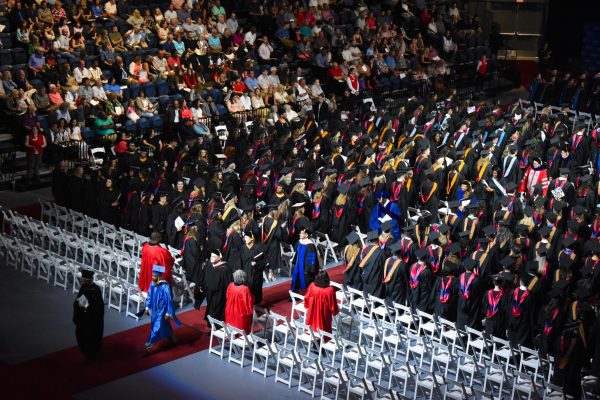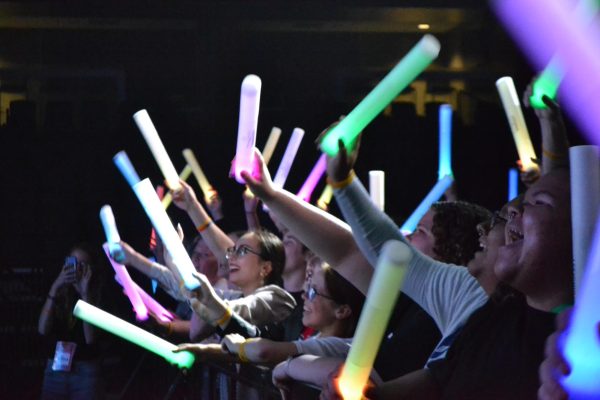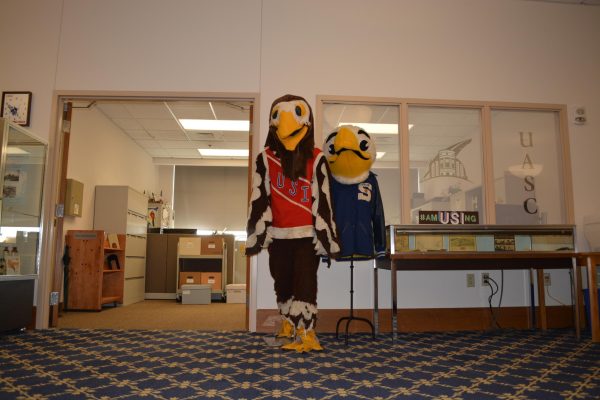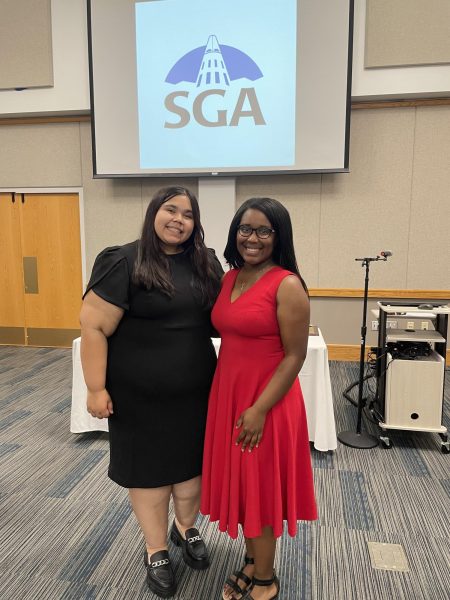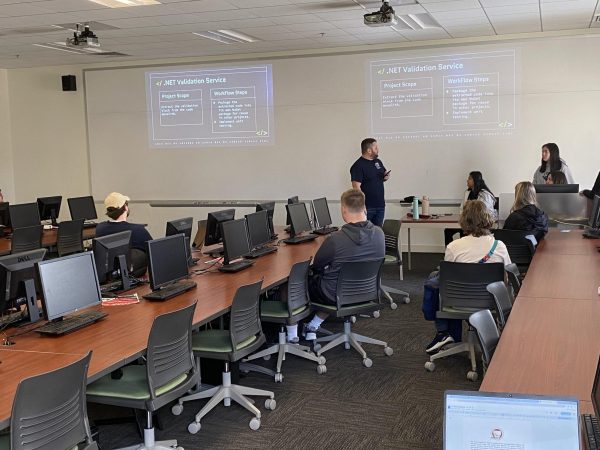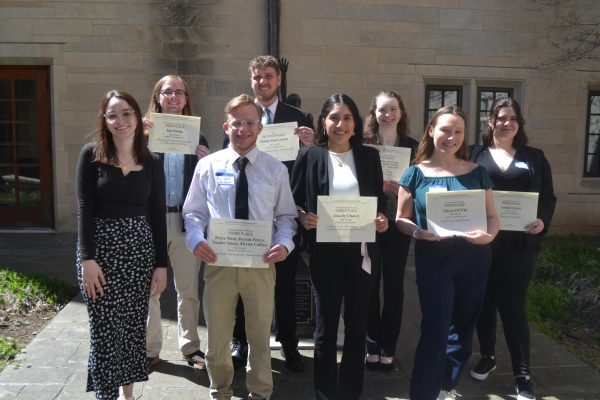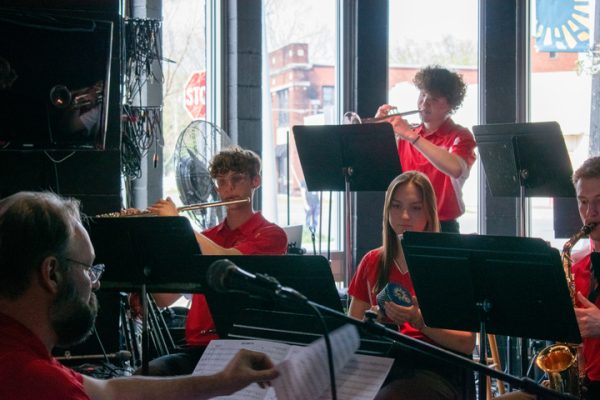Rapid COVID-19 testing available on campus
a drive-through testing clinic located off Green River road.
December 2, 2020
Students and faculty have access to rapid COVID-19 testing at the University Health Center starting Dec. 1.
Students remaining on campus until the end of the fall semester, first responders and employees, student-athletes and other students will be offered the rapid testing first by request.
Tests will be administered by appointment only. Scheduling is available through the university’s website.
The Indiana State Department of Health has made rapid COVID-19 testing available at the university.
According to an email from the University Health Center, the Indiana State Department of Health is providing all Indiana higher education institutions with free Abbott BinaxNOW rapid-result COVID-19 testing kits.
The Indiana State Department of Health is also providing personal protective equipment such as gloves, gowns and face shields.
BinaxNOW is an antigen test. According to the U.S. Food and Drug Administration (FDA), antigen tests are diagnostic tests that detect specific proteins of the virus.
Instead of a molecular testing that swabs the part of the throat behind the nose, antigen testing is a less invasive form of COVID-19 testing because the inside tip of the nostril is swabbed.
The results of the test also come back to the recipient within 20 to 30 minutes instead of two to three days.
According to the FDA website, “Antigen tests usually provide results diagnosing an active coronavirus infection faster than molecular tests, but antigen tests have a higher chance of missing an active infection.”
Hairo Rivas, a junior international business major, sees the benefit of rapid COVID-19 testing.
“I know a few people who have had rapid testing. It’s really nice because they don’t have to wait and that way they don’t have to worry all of their family members, and just for their safety and the safety of their community as well,” Rivas said.
Rivas added that the University Health Center was extremely helpful to students this semester.
“I feel like students, especially this semester, are taking advantage of it in a great way,” Rivas said. “It provides resources, guidance and tools they need.”
Rivas said the key right now is to be safe. He recommended that students continue to wear masks and avoid social gatherings.
However, there are some students who hold reservations about rapid testing.
Amelia Janes, a freshman bio pre-med major, is concerned about the accuracy of rapid testing.
“I think that the rapid testing is a good option, so you are not sitting around waiting,” Janes said. “But I think that the two to three-day test is probably going to be a little more accurate.”
According to the CDC, antigen tests have reported 100% specificity. In other words, false positives are highly unlikely with antigen testing.
The CDC warns that false negatives are not uncommon and recommends a molecular test to confirm negative results from an antigen test.
Madeline Wigand, senior public relations and advertising major and marketing minor, feels rapid testing is a good service, but that they might not be as accurate as the normal testing process.
Wigand said, “I feel like COVID rapid testing is a good thing. It’s very convenient… Normally the test comes back in two to three days, I feel like the rapid test could give false negative or positive results. You don’t really know for sure if that’s right.”
Wigand thinks the university has handled COVID-19 testing well.
“I think the university should add more days of COVID testing especially when students are on campus. I think they should have started rapid testing sooner,” Wigand said.
The University Health Center offers testing on Tuesday afternoons and Thursday mornings. The Health Center will close Dec. 22 and open again Jan. 4.

